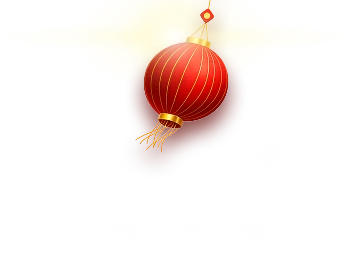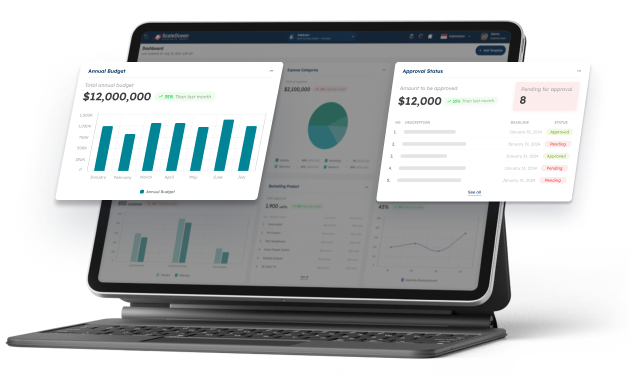Grant administration is a crucial technique for organizations seeking to secure and effectively manage funding to advance projects. In Singapore, where the government and private sector provide multiple financing options to promote innovation and economic growth, effective grant management is critical.
Whether for organizations, businesses, or government agencies, administering grants requires a rigorous, systematic approach that encompasses everything from identifying funding sources to ensuring regulatory compliance.
In this post, we will discuss the various stages of grant management, common mistakes to avoid, and the critical tasks of a grants manager. We will also provide top ideas for optimizing your grant management practices, helping organizations to streamline operations while increasing the effect of their funding.
- Grants management is an organized process that oversees grant applications, financial disbursement, compliance, and reporting the outcome to ensure project success.
- Common mistakes made during the grant management process are poor documentation, mismanagement of funds, inadequate communication, and failure to meet reporting deadlines.
- Best practices for grant management include understanding grant requirements, using integrated systems, setting up reminders, and maintaining accurate financial records for compliance.
- ScaleOcean software, as a vendor, offers customized grant management solutions that streamline application processes, track fund usage, and ensure compliance with regulatory requirements.

What is Grants Management?
Grants management is an organized procedure or a comprehensive process that oversees grant applications, financial disbursement, compliance, and reporting the outcome to ensure project success.
In Singapore, businesses, organizations, and government agencies rely on good grant administration to gain access to financing opportunities that fuel innovation and economic progress.
The city-state’s structured regulatory environment needs a rigorous grant administration approach in order to preserve compliance and maximize funding benefits. Organizations in Singapore use grants management practices to meet sponsor expectations while maintaining transparency and accountability.
Whether seeking financial assistance for technology breakthroughs or corporate expansion, a well-implemented grants administration system can greatly improve operational efficiency and long-term viability.
Grant Management Lifecycle
Effective grant management involves a planned lifecycle that ensures successful fund allocation, compliance, and project execution. Understanding each stage of the process is critical for Singaporean businesses seeking to navigate regulatory restrictions and maximize the use of a business grant.
The grant management lifecycle involves three essential phases:
1. Pre-Award Phase
The pre-award phase is crucial in the grant management lifecycle, as it sets the stage for a successful application. This step involves identifying suitable funding opportunities, crafting proposals, and determining eligibility to ensure a strong application.
Singapore companies must align their applications with specific funding parameters to maximize their chances of success. Meeting the funder’s requirements and addressing their priorities are essential for receiving approval and securing the necessary funding.
a. Identifying Suitable Funding Opportunities
Identifying suitable funding opportunities involves researching grants that align with your organization’s mission and project goals. In Singapore, this includes understanding the funding body’s criteria, timelines, and supporting projects, especially with the trends of ERP focusing on digital transformation and tech advancements.
b. Preparing and Submitting Grant Proposals
Once a funding opportunity is found, a comprehensive proposal must be prepared, outlining the project’s objectives, goals, and budget. In Singapore, proposals must meet local funding agency expectations. Effective enterprise management strategies should align the project with organizational goals for maximum impact.
c. Conducting Eligibility Checks and Budget Planning
The organization must meet all eligibility standards, including assessing financial health and ensuring the project aligns with the funder’s scope. Budget planning is crucial to ensure the sought funds align with the project’s costs, including ERP price, to stay within the funder’s budget limits.
2. Award Phase
Once a grant application is approved, the award process begins. This phase involves analyzing applications and finalizing terms, ensuring both parties are aligned on expectations. Careful attention to detail is key to successful grant issuance.
In Singapore, adhering to the regulatory environment and funder requirements is crucial. Following these guidelines ensures the grant is issued and dispersed smoothly, avoiding delays or complications in the process.
a. Reviewing and Evaluating Applications
During this step, the financing body thoroughly reviews the applications it has received. This includes examining the project’s feasibility, possible impact, and how well the idea corresponds with their objectives. In Singapore, this phase is especially competitive, and every element in the application is important.
b. Negotiating Terms and Conditions
After evaluation, the grantor and applicant negotiate terms like funding amount, deadlines, and usage conditions. Both must reach a mutually beneficial agreement. In Singapore, this often includes following specific reporting or usage guidelines to ensure clear expectations and deliverables.
c. Finalizing the Grant Agreement
Once both parties have agreed on the parameters, the grant agreement is signed. This paper outlines all criteria, including the overall grant amount, payment dates, and progress report requirements. It is critical to engage legal counsel to ensure that all conditions are clear and enforceable.
3. Post-Award Phase
During the post-award period, organizations undertake grant-funded projects while also ensuring effective financial management and compliance. This phase entails regular communication with funders to report on progress, manage finances, and close the project once completed.
In Singapore, preserving transparency throughout this phase is critical for meeting both legal and contractual requirements. According to Grants Government, federal agencies rigorously monitor grant recipients through programmatic and financial reporting to ensure that all grant terms are satisfied and funds are properly spent.
a. Implementing Grant-Funded Projects
This phase sees the completion of the grant-funded project. This includes assigning resources, managing teams, and adhering to the project plan. Proper project execution is critical to demonstrate the grant’s value and meeting the objectives. In Singapore, it is critical to track progress against established milestones and timetables.
b. Monitoring Compliance and Financial Management
Throughout the project’s execution, the funds must be used in accordance with the agreement. This includes keeping accurate financial records, tracking spending, and adhering to all requirements. In Singapore, firms must follow tight auditing and compliance rules.
c. Reporting Progress and Financial Status to Funders
Funders often require regular updates on project progress, including cash spending, milestones, and any challenges faced. In Singapore, transparency during the post-award period is vital, and timely report submission helps maintain strong relationships with funders and secure future funding.
Common Mistakes Made During the Grant Management Process
Many Singaporean organizations make typical mistakes while administering funds, which can undermine the success of their projects. These errors not only have a financial impact but can also harm relationships with sponsors, resulting in compliance concerns and the potential loss of future financing.
Recognizing these shortcomings allows firms to improve their methods, streamline operations, and achieve better grant management outcomes. Here are a couple of mistakes made during the grant management process:
1. Poor Documentation Practices
Failure to keep orderly records can cause issues during audits and reporting, risking noncompliance with funder requirements. In Singapore, where transparency is essential, inadequate documentation can lead to penalties and refund delays.
To avoid this, businesses should set up an orderly record-keeping system, whether digital or paper-based. Regularly updating and storing all project-related documentation ensures that reporting is both timely and accurate.
2. Mismanagement of Funds
Improper distribution of cash might result in financial differences and jeopardize the overall effectiveness of the project. Mismanagement, such as overspending in one area while underutilizing another, can cause delays or undermine the project’s goals.
To avoid this, employ budget tracking systems to guarantee that money is allocated in accordance with the original idea. Regular budget reviews can assist in keeping track of spending and preventing mismanagement.
3. Inadequate Communication
Poor communication with stakeholders and funders can result in misunderstandings and missed deadlines, compromising project success. Without clear communication, expectations may not be aligned, resulting in unnecessary delays.
Establishing regular updates and open lines of contact with all interested parties keeps everyone on track. Using project management software can help boost teamwork and ensure that everyone understands their roles and responsibilities.
4. Failure to Meet Reporting Deadlines
Missing deadlines for financial or progress reports can result in delayed financing, penalties, and strained relationships with funders. In Singapore, failing to meet these dates might jeopardize your organization’s reputation and future chances.
To remedy this, create automated reminders for approaching deadlines. Preparing reports in advance ensures that the necessary material is provided on time, avoiding problems with sponsors.
5. Non-Compliance with Grant Conditions
Failure to follow the terms and conditions of a grant might result in penalties or termination of financing. Compliance is particularly tight in Singapore, where donors expect detailed reporting and proper use of funding.
To avoid penalties, read the grant terms carefully and check compliance requirements on a regular basis. Establish internal checks to guarantee that all requirements are completed throughout the project’s lifecycle.
6. Reliance on Manual Processes
Manual techniques for tracking finances and creating reports might result in inefficiencies and costly errors. This can lead to missed deadlines, erroneous data, and trouble managing complex projects.
Implementing grant management software streamlines operations such as money tracking and report preparation, increasing accuracy and saving time. Organizations can use a digital system to speed operations, eliminate errors, and improve compliance.
ScaleOcean ERP software integrates grant management functions, automating financial tracking and report generation. By offering real-time data and customizable workflows, it ensures seamless operations, improves accuracy, and enhances compliance, providing a comprehensive solution for managing complex projects.

Who is a Grants Manager?
A grants manager is an important function inside an organization, handling the full grant administration process. Their primary responsibilities include checking compliance with grant terms, tracking the use of funds, and ensuring that all reports are delivered on schedule.
They play an important role in assisting the organization in maximizing the impact of grant funding by ensuring monies are used properly.
Grants managers serve as the organization’s connection with external funders, ensuring that initiatives meet both financial objectives and regulatory requirements. By following ERP implementation best practices, their efforts ensure transparency, accountability, and the successful execution of sponsored initiatives.
Responsibilities of a Grants Manager
A grants manager is critical to ensuring that financed projects succeed. They are responsible for all areas of grant administration, from identifying acceptable funding sources to administering the financial and regulatory parts of the grant process.
Their tasks include ensuring that initiatives meet funders’ expectations while increasing the efficacy of funding received. So, here are the main responsibilities of a grants manager:
1. Identifying and Applying for Grants
Grants managers are in charge of studying and identifying prospective funding sources that are consistent with the organization’s goals.
They must analyze numerous grant programs, determine eligibility, and write convincing grant applications. This guarantees that the organization has the required funding to support projects and initiatives.
2. Budget Planning and Financial Tracking
Once a grant is obtained, grant managers create and monitor the budget to ensure that funds are handled appropriately. They keep track of spending to verify that it is in accordance with the grant requirements and is not excessive.
Proper financial tracking helps produce accurate reports and ensures that funds are spent efficiently to achieve their intended goals.
3. Ensuring Compliance with Grantor Regulations
Grant managers guarantee that the organization follows all of the grantor’s terms and conditions. This includes meeting deadlines, following financial reporting rules, and ensuring the grant money is used according to the agreed-upon terms.
Compliance is crucial for preserving a good reputation with sponsors and obtaining future awards.
4. Managing Reporting and Documentation
Grant managers are responsible for ensuring that all grant-related documentation and reports are accurate and timely.
This covers progress, financial, and final project reports. Proper documentation is critical for openness, accountability, and meeting funding criteria.
5. Coordinating with Stakeholders and Funders
Grants managers serve as the key liaison between the organization, stakeholders, and donors. They manage communication and ensure that all parties understand the project’s objectives, timetables, and financial specifics.
This promotes positive relationships with funders and keeps the project on pace.
6. Implementing Grant Management Solutions to Improve Efficiency
Grants managers use technology to streamline the grant management process. Implementing grant administration solutions, such as software systems, automates processes such as budget tracking, report generation, and deadline management.
According to the Enterprise Singapore government program, starting from 1 April 2023, SMEs can get up to 50% support for their projects under the EDG program. For sustainability-focused projects, the support increases to 70% until 31 March 2026.
This funding, paired with efficient grant management solutions, helps businesses optimize their processes and boost project success.
26 Best Practices for Grant Management
Managing grants effectively takes meticulous planning and attention to detail. Organizations can improve their grant administration processes by adhering to best practices and using the appropriate technologies, assuring openness, accountability, and effective project results.
Here are 26 recommendations for improving your grant management strategy:
1. Understand the Grant Requirements Thoroughly Before Applying
Before applying for a grant, make sure you understand the funder’s requirements, restrictions, and expectations.
This helps you tailor your proposal to their aims, increasing your chances of success. Taking the time to read the requirements guarantees that your application is complete and meets all standards.
2. Develop a Detailed Grant Management Template for Tracking Applications
Creating a uniform template for tracking applications might help to guarantee that no steps are overlooked during the submission process.
This template might include deadlines, funder information, and the progress of each application, offering a comprehensive perspective of the grant process. It helps to keep the team organized and improves follow-up procedures.
3. Allocate Funds Efficiently to Avoid Overspending
Proper fund allocation guarantees that each component of the project is fully funded while remaining within the budget.
Efficient allocation reduces the danger of financial discrepancies and keeps the project on track. The budget should be reviewed on a regular basis to verify that funds are being used properly.
4. Implement an Integrated Grant Management System for Better Oversight
An integrated grant management system simplifies the entire process by combining all parts of grant management onto a single platform. This system is capable of automating operations such as budget tracking, report management, and meeting deadlines.
It increases visibility and control over grant activities, making management more efficient and aligning with business process management principles for smoother operations.
5. Maintain Clear Communication with Funders and Stakeholders
Effective communication with funders and stakeholders helps to ensure that expectations, deadlines, and deliverables are all on track.
Regular updates and open communication can help avoid misconceptions and handle problems swiftly. Clear communication channels can foster trust and promote project collaboration.
6. Set Up Automated Reminders for Reporting Deadlines
To avoid missing important deadlines, set up automated reminders for progress reports, financial statements, and other essential milestones.
Automated systems can notify the team ahead of time, thereby ensuring that all paperwork is submitted on schedule. This lowers the danger of penalties and delays in acquiring additional cash.
7. Regularly Review Financial Records for Accuracy and Compliance
Maintaining accurate and up-to-date financial records is critical for meeting grant criteria. Regularly checking these records helps to uncover inconsistencies early on and ensures that funds are handled accurately.
This approach can help to prevent financial misconduct and ensure that audits run smoothly.
8. Train Staff on Best Grant Management Practices
We train staff personnel involved in grant administration to ensure they have the information and skills required to complete their duties successfully. Well-trained employees can navigate complex processes and avoid frequent errors.
It also guarantees that all team members are following the organization’s standards and best practices.
9. Document All Grant Activities for Transparency
Accurate documentation of all grant operations is critical to ensuring transparency and accountability. This involves documenting all decisions, expenses, and progress reports.
Proper documentation ensures the organization provides clear evidence of how it spent grant monies in the event of an audit.
10. Use the Best Grant Management Software to Streamline Processes
Investing in the best grant management software can automate numerous time-consuming processes, including report generation and deadline tracking. These tools improve efficiency and reduce the likelihood of mistakes. A good software solution gives real-time data, which helps in decision-making and reporting.
The best ERP software in Singapore offers comprehensive solutions that integrate seamlessly with grant management tools. Centralizing financial, operational, and grant-related data allows businesses to gain a unified view of their performance. This enhances decision-making, ensures compliance, and supports efficient resource allocation.
11. Conduct Internal Audits to Ensure Compliance with Funding Guidelines
Internal audits guarantee that your organization follows the funder’s rules and regulatory obligations. Regular audits can reveal any compliance gaps, allowing you to rectify issues before they become major problems. This also prepares your organization for any external audits that may take place.
12. Leverage SAP Grants Management for Complex Grant Tracking Needs
For firms with extensive grant management requirements, utilizing SAP grants management solutions can be an effective solution.
SAP provides extensive functionality for managing large-scale projects, tracking different financing sources, and automating operations. Using these tools can help to streamline operations and enhance overall project management.
13. Prioritizing Funding Requirements
Before applying for grants, prioritize your funding needs. For instance, determine if your project fits under the Core Capabilities or Innovation pillars of the Enterprise Development Grant Singapore to align with your most crucial goals.
By organizing your funding requirements, you can better focus on the opportunities that match your needs. This strategic approach also makes it easier to tailor your proposals to align with the funder’s goals, improving your chances of success.
14. Establishing a Grant Management Calendar
Having a dedicated calendar for managing grants is key to keeping track of important dates like deadlines, reporting milestones, and funding periods. It helps ensure that nothing gets missed and everything is organized.
Integrating automated reminders into the calendar will help your team stay ahead of deadlines. This approach minimizes stress and ensures the timely submission of paperwork, allowing for smooth progress and fewer delays.
15. Identifying Potential Donors
Creating a list of potential donors is a proactive step in the grant management process. It’s about identifying those funders whose interests and goals align with your project’s mission.
By keeping track of donor preferences and funding requirements, you can tailor each application to fit their needs. This approach not only saves time but also boosts your chances of securing the funding you need.
16. Defining Clear Goals and Objectives
Setting clear goals and objectives from the start is essential for guiding your project’s direction. It’s about being specific, measurable, and focused, so everyone knows what success looks like.
These goals act as a roadmap for your project, helping to keep it on track. They also measure progress, ensuring everyone stays aligned and focused on achieving the desired outcomes.
17. Comprehensive Planning
Comprehensive planning is vital to address every aspect of grant management, from application to execution. It involves breaking down the project into actionable steps, assigning roles, and setting realistic timelines.
A well-thought-out plan minimizes risks and ensures you don’t miss any steps. It provides a clear path for team members to follow and helps track progress, ensuring that the project stays on course.
18. Maintaining Accurate Records
Accurate record-keeping is essential for managing grants effectively. It’s about keeping track of all financial transactions, decisions, and project updates, which ensures transparency and accountability.
Organizing records makes it easier to manage audits and helps you provide clear evidence of how you spent the funds. This level of transparency builds trust with funders and helps avoid any potential issues with compliance.
19. Managing Risks
Managing risks involves anticipating challenges that could interfere with your project’s success and developing strategies to address them. This proactive approach helps ensure smooth operations.
By regularly assessing risks, you can implement solutions before issues arise. Having contingency plans in place ensures that, even when unexpected problems occur, your project can adapt and stay on track.
20. Promoting Collaboration
Collaboration is key to successful grant management. When teams and stakeholders work together, they can share insights, resources, and expertise, which ultimately strengthens the project.
Effective collaboration aligns everyone and drives them to work toward the same goals. It helps resolve issues faster, improves decision-making, and ultimately leads to better outcomes for the project.
21. Ensuring Transparency
Transparency is vital for building trust with both funders and stakeholders. By openly sharing updates, decisions, and financial records, you demonstrate your commitment to managing funds responsibly.
Clear and open communication with all parties involved helps you avoid misunderstandings and manage expectations effectively. This transparency fosters positive relationships and ensures everyone is on the same page.
22. Building Capacity
Building internal capacity equips your team to handle future grant projects effectively. It involves investing in training and improving the systems that support grant management.
By strengthening your team’s skills and processes, you can manage more complex projects with ease. This investment in capacity building improves long-term efficiency, allowing your organization to take on bigger and more challenging grants.
23. Ensuring Long-term Sustainability
Planning for long-term sustainability is key to making sure that your grant-funded projects continue to thrive even after the funding ends. This involves thinking about future funding options and project maintenance.
By integrating sustainability into your planning, you ensure that the benefits of the grant extend beyond its immediate duration. This helps your organization create lasting change and supports long-term success.
24. Upholding Ethical Standards
Ethical standards should be at the core of grant management. It’s about being honest, transparent, and fair in all your dealings, whether with funders, beneficiaries, or the public.
Upholding ethics ensures you use all funds appropriately, manage the project with integrity, and maintain the trust of your stakeholders. Ethical practices also help mitigate risks of mismanagement and legal issues.
25. Promoting Diversity, Equity, and Inclusion
Incorporating diversity, equity, and inclusion (DEI) into grant management ensures that all communities have equal access to opportunities. This approach fosters a more inclusive project environment.
By promoting DEI, your organization demonstrates its commitment to social responsibility and ensures that the project benefits a diverse range of stakeholders. This approach also aligns with many funders’ priorities and increases the likelihood of funding support.
26. Collecting and Using Feedback
Feedback is a valuable tool for improving your grant management strategy. Regularly collecting feedback from stakeholders helps identify areas for improvement and ensures that you’re meeting project goals.
By incorporating feedback, you can adapt your processes and fine-tune your approach. This iterative process ensures that your grant projects are always improving, resulting in better outcomes and stronger relationships with funders.
Secure Funding Grants for ERP Software with ScaleOcean
ScaleOcean software maximizes your company’s potential with the proper ERP software by getting grants. Our customized grant administration solutions assist companies in streamlining applications, tracking fund utilization, and ensuring compliance with grant regulations.
Businesses that use the best grant management software can improve operational efficiency and achieve long-term success. Investigate funding options today and drive your digital transformation with ScaleOcean’s unique ERP solutions, and explore how ERP implementation can further enhance your business processes.
With ScaleOcean’s ERP solutions, your business becomes eligible for the CTC grant, unlocking the benefits of digital transformation and efficiency. Take advantage of this opportunity to streamline operations, reduce costs, and position your company for long-term growth with our tailored solutions.
Here are the key features for ScaleOcean’s software:
- Streamlined Applications: ScaleOcean’s solution simplifies the application process, reducing the time and effort required to apply for grants. It helps organizations easily manage and submit grant proposals.
- Fund Tracking: The software tracks fund utilization in real-time, ensuring that every cent is spent according to the grant’s stipulations. This ensures compliance and prevents overspending.
- Compliance Assurance: ScaleOcean’s grant management system ensures that organizations meet all regulatory and funder-specific requirements, making it easier to maintain compliance throughout the project lifecycle.
- Enhanced Operational Efficiency: By automating key tasks such as documentation, tracking, and reporting, ScaleOcean’s software boosts efficiency, reducing the manual workload and enabling better use of resources.
- Long-Term Success: The solution is designed to scale with your business, providing continued support as your grant management needs grow. This helps businesses achieve long-term success and secure future funding opportunities.
- Digital Transformation: ScaleOcean’s ERP software integrates seamlessly with your grant management process, accelerating your digital transformation and helping your organization modernize its operations.
Conclusion
Effective grant management is crucial for the successful implementation of funded projects, particularly in a structured regulatory environment such as Singapore. Organizations may increase their chances of acquiring and using grants by understanding the entire lifecycle, avoiding common mistakes, and ensuring compliance with grant terms.
Businesses can improve their grant management practices by ensuring enough monitoring, clear communication, and the appropriate instruments, resulting in project success and long-term sustainability. ScaleOcean offers a solution that aims to simplify your grant administration procedure while increasing operational efficiency.
ScaleOcean’s integrated ERP system and grant administration software can help you improve compliance, real-time money tracking, and reporting accuracy. Schedule a free demo today to explore how ScaleOcean can help you manage your grants and move your company forward.
FAQ:
1. What does a grants management system do?
Grant management systems are used throughout the entire lifecycle of a grant. This includes identifying grant opportunities, receiving applications, awarding funds, and managing the use of those funds to ensure all requirements are met for successful implementation.
2. What skills do you need for grant management?
Key skills for grant management include communication, management, leadership, research, writing, and planning. Communication is the most important skill sought after in grant management specialist positions, followed by the ability to manage and lead effectively.
3. What are the 5 R’s of grant writing?
The five R’s of grant writing are preparing your documentation, researching the grant, writing a proposal, building relationships with potential funders, and reporting impactfully. These steps help you create a strong application that increases your chances of success both now and in the future.
4. Why is grant management important?
Grant management ensures that your organization can retain and use awarded funds. It also helps meet funder requirements, report progress, and maintain smooth internal tracking and accounting processes, all of which contribute to the long-term success of the grant project.












 PTE LTD..png)
.png)

.png)








.png)
.png)
















